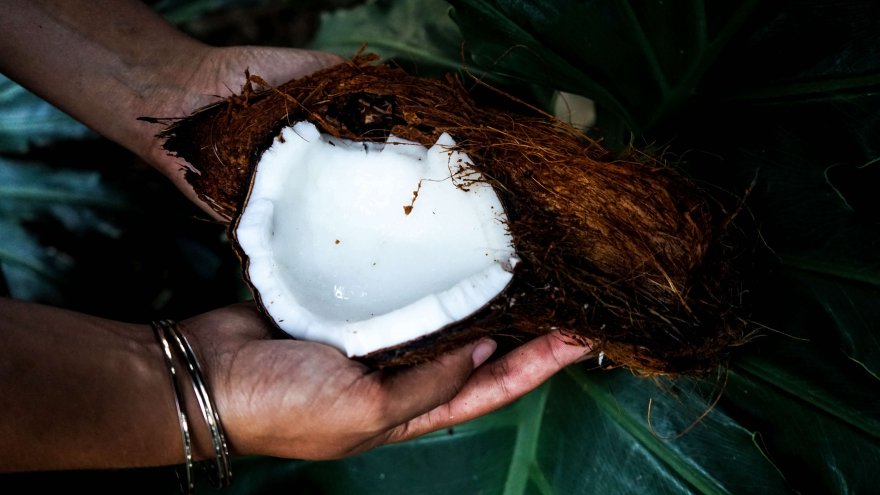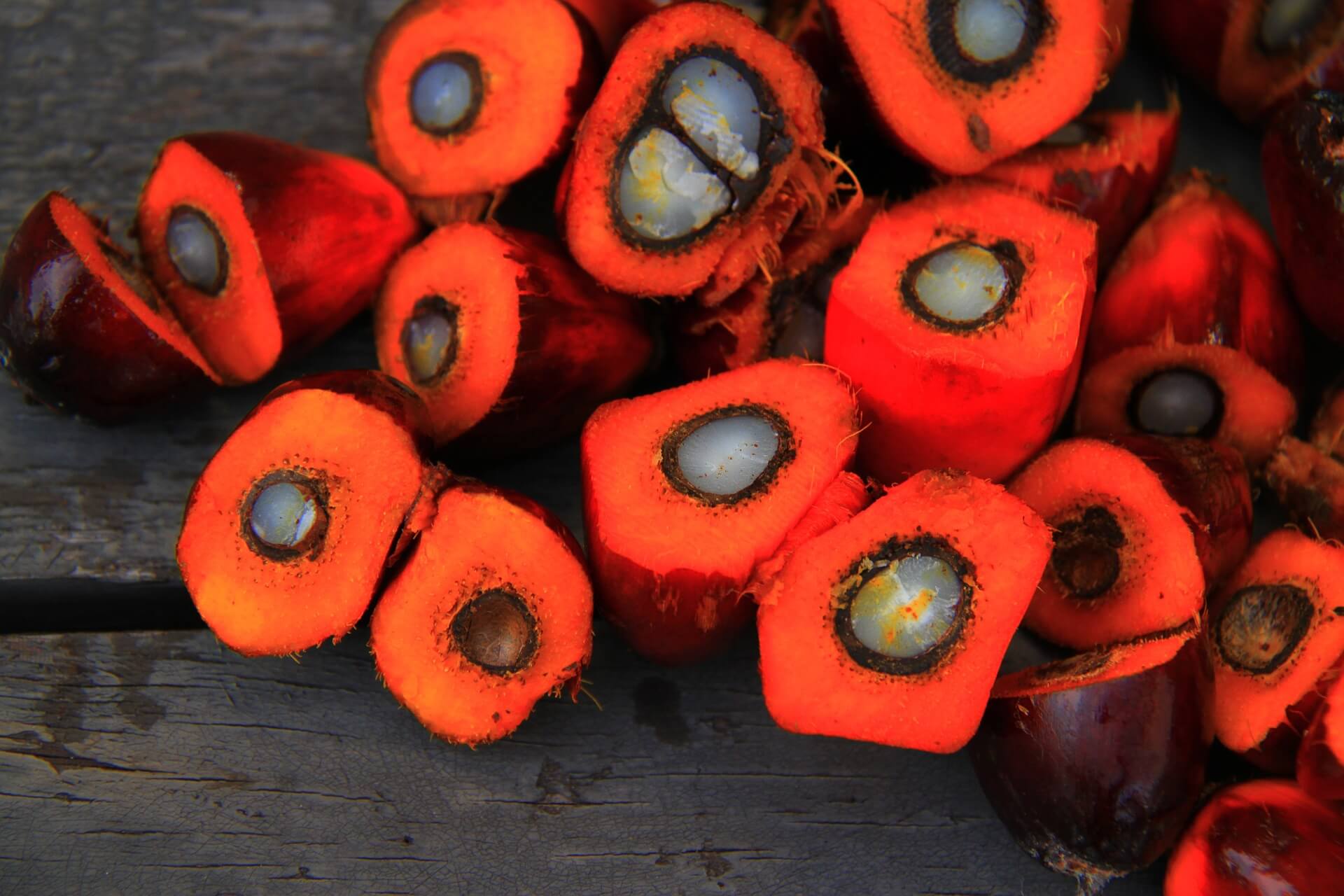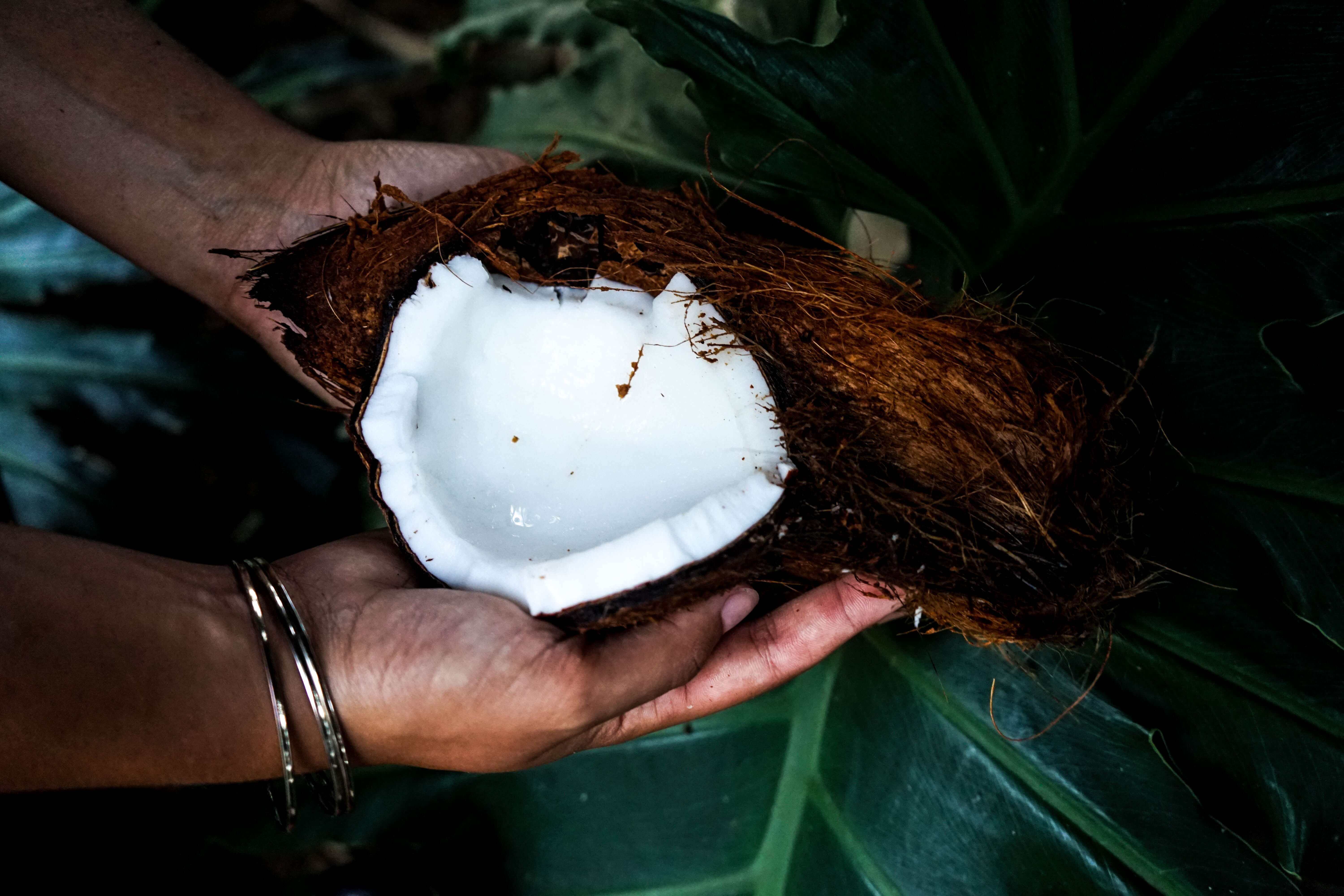Can You Use MCT Oil to Improve Your Performance?

How would you feel if you found out that not all saturated fats are evil? If you’re anything like me, your heart might have just done a little leap of joy. On the rollercoaster of emotions that is our modern diet (this is bad for you, actually it’s the worst thing you could eat, ok no wait it’s good for you now), fats have taken quite a beating. But the new research is in, and it turns out that not all saturated fats are created equal.
What is MCT?
MCT stands for ‘medium-chain triglycerides.’ MCTs are a kind of saturated fatty acid found mainly in coconut oil, palm & palm kernel oil (see the paragraph below on ethically sourced palm oils), and grass-fed butter and beef, but it’s also found in smaller amounts in whole milk, some cheeses, and full-fat yogurt. Unlike the more common long-chain triglyceride fats, your body processes medium chain triglycerides pretty quickly (similar to carbohydrates). This is because most long chain fatty acids have to go through a long and complicated process of digestion that moves them through the bloodstream and into different tissues to either be stored or metabolized. MCTs, on the other hand, are easily absorbed and sent straight to your liver, where they are rapidly metabolized with a ‘thermogenic effect’ – calories are burned to create heat, and this boosts your metabolism process. In short, MCTs are burned as fuel instead of stored as fat.

It’s some cause for concern that these important fats are missing from the standard American diet. Because we’ve been told over and over that all fats are bad for you, most of us will go out of our way to order non-fat lattes, buy low-fat foods, and basically avoid anything with the word “fat” in it like it’s the plague. I’ve even overheard people saying “Go easy on the avocado! It’s very fatty.” This statement, while technically true, is actually all wrong. Avocados are full of fat, but it’s the good kind. MCTs actually increase energy expenditure. This means they make your body burn MORE calories than it usually does. Medium chain triglycerides, in fact, have been proven to help promote weight loss and prevent obesity. You can download a helpful nutrition app to make keeping track of what you eat a little easier.
The Truth about Palm Oil
Now, about the palm oil. You’re probably thinking, “Seriously? Palm oil?!” We’ve all seen the tear-inducing photos of orangutans and other animals being inhumanely forced out of their natural habitats because of palm oil production and the issue is still very real.

But the truth is that ethically sourced palm oils do exist, if you know where to look. And palm oil as an industry is not going anywhere. Over 50% of processed goods contain palm oil, including soaps, bread, instant noodles, shampoo, ice cream, and dog food, just to name a few. The good news is that as with most things, your best defense is knowledge.
Types of Oils
First, there are a few different types of oils derived from different types of palm trees and it’s important to differentiate between them. The three most common are coconut oil, palm oil, and palm kernel oil.

Coconut oil is extracted from the meat of mature coconuts from the coconut palm (Cocos nucifera, grown in the tropics worldwide) and is about 82% saturated fat. Palm oil is derived from the pulp of the fruit of several different kinds of oil palms (mostly from the African Elaeis guineensis, but also from the American Elaeis oleifera and the South American Attalea maripa) and is about 50% saturated fat. Palm kernel oil is extracted from the kernel or seed of the African oil palm (Elaeis guineensis) and is about 80% saturated fat. They are all edible oils.
Second, you’ll want to look up a list of ‘sneaky’ names that palm and palm kernel oil go by. There are over 25 different names (like stearic acid, sodium laryl sulfate, etc). There’s an organization named Roundtable on Sustainable Palm Oil (www.rspo.org) who have all the information you need to source the best ethical palm oil for you.
Ok, MCTs are good for you. But can they improve my performance?
Well, the data from studies on this issue to date are conflicting. One of the reasons for this is that there are many factors to consider. Something called keto-adaptation can occur when a person is on a ketogenic diet, and in this case, there is definitely good reason to believe that MCTs will help improve your performance. However, many study participants are not on a ketogenic diet, or if they have just started one, their fitness level will actually be impaired for the first few weeks. Consuming MCTs on their own has been shown to actually negatively affect performance, which is probably due to GI issues from ingesting too much of it. MCT’s can cause gastrointestinal issues for some people, and to help prevent or alleviate this, it’s recommended that you combine the MCT’s with another food, don’t overdo your intake, and introduce it into your diet slowly. The MCT benefits to fitness levels can also depend on your carb intake. When combined with carbs, some improvement to performance has been shown. Another study demonstrates that MCTs may improve performance at longer periods of time, but not shorter periods of time.

These results seem to show that unless you are on a ketogenic diet, have introduced MCTs slowly, or are looking for a small long-endurance edge, MCTs may not be the performance enhancer you’re looking for.
Conclusion
While the jury is still out on whether or not it’s worth it to use MCTs to enhance your performance as an athlete, research shows that it is definitely worth including them in your regular daily diet. Slowly switching out other saturated fats in place of MCTs has been proven to help control weight loss, reduce inflammation, boost your metabolism, increase oxidation rates and energy expenditure, improve cognitive function, and even help fight bacterial infections and viruses (because it contains caprylic and lauric acid). With its definite improvement to your body composition, it sounds like a safe bet all around to increase your MCT intake as a runner.
Sources
Latest Articles
 Is Running on a Treadmill Easier Than Running Outside?Runners have their own preferences, whether it is treadmill running, running outside on the road, or exploring trails. So...
Is Running on a Treadmill Easier Than Running Outside?Runners have their own preferences, whether it is treadmill running, running outside on the road, or exploring trails. So... Is It OK to Use Trail Running Shoes on the Road?While trail running shoes can be used on roads, especially in situations where a runner encounters mixed terrains or pref...
Is It OK to Use Trail Running Shoes on the Road?While trail running shoes can be used on roads, especially in situations where a runner encounters mixed terrains or pref... How to Fix Sore Quads After Running?Rest, ice, gentle stretching, and over-the-counter pain relievers can help soothe sore quads after running. Also, ensure ...
How to Fix Sore Quads After Running?Rest, ice, gentle stretching, and over-the-counter pain relievers can help soothe sore quads after running. Also, ensure ... 10 Fruits With The Most Electrolytes to Replace Sports DrinksThese fruits are high in electrolytes such as potassium, magnesium, and calcium, essential for hydration, muscle function...
10 Fruits With The Most Electrolytes to Replace Sports DrinksThese fruits are high in electrolytes such as potassium, magnesium, and calcium, essential for hydration, muscle function...

